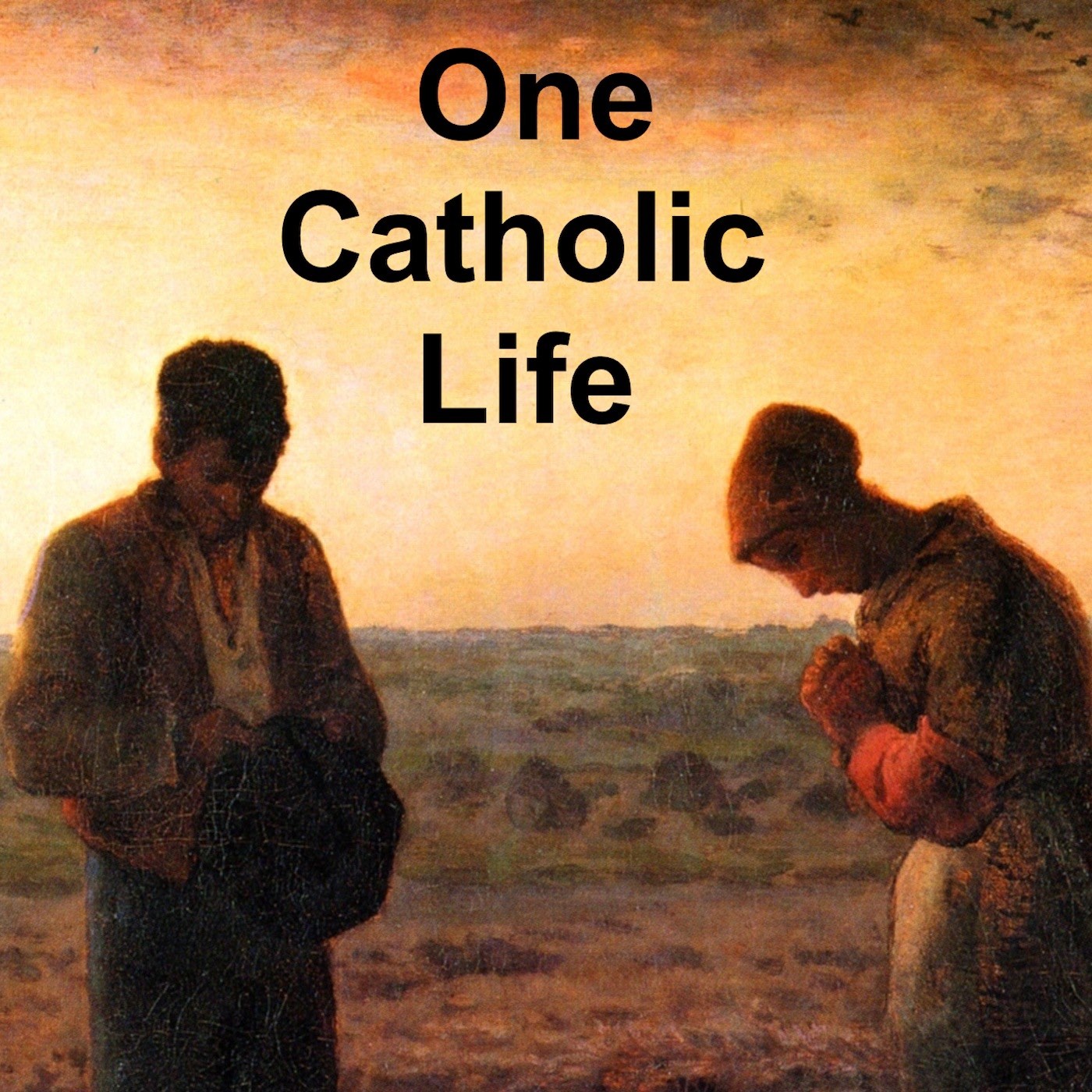C.S. Lewis, Joy, and Persistent Prayer: Homily for the 29th Sunday in Ordinary Time – Year C
Description
The dramatic scene from the first reading,
with Moses raising the staff of God during battle,
and Joshua mowing down Amalek,
almost feels like a scene from The Lord of the Rings.
But it’s not Tolkien that I find most helpful in breaking open today’s scripture,
but rather one of his best friends, C.S. Lewis.
Lewis, as many of you know,
was the author of the Narnia series,
that wonderful set of books about Aslan, Prince Caspian,
and the magical world on the other side of the wardrobe.
Lewis got married late in life,
when he was fifty-eight years old, in fact,
to a woman named Joy Davidman, who was forty-one.
After being a bachelor all his life,
Lewis’ relationship with Joy transformed him into a better man,
a man he didn’t know he could be.
This is what all deep relationships do.
They challenge us, they reflect us back to ourselves
so we can see who we are and who we are becoming.
They stretch us and open us up to new possibilities.
Deep relationships transform us.
And this is what prayer does,
because prayer is our relationship with God.
In prayer we encounter God
and are transformed.
But as today’s readings remind us
that can only happen if we pray always,
without growing weary.
Today’s readings are about perseverance in prayer.
Moses persevered in keeping his hands raised up,
and so Amalek was defeated.
The letter to Timothy says,
“be persistent whether it is convenient or inconvenient.”
And in the gospel the widow’s perseverance
moves the judge to give her justice.
What these readings illustrate is that prayer, like any deep relationship,
takes time and faith,
and doesn’t always feel good.
Prayer Takes Time
Earlier in the gospel of Luke,
Jesus tells us to seek and we will find,
knock and the door will be opened.
But he doesn’t say how long we’ll have to search,
or how hard we’ll have to knock.
Moses had to hold his arms up for hours,
from dawn to dusk.
The widow had to keep bothering the judge day after day.
Sometimes it takes years before we see the fruit of our prayers.
How many prayers were said in cotton fields
before slavery was outlawed in this country?
How many people prayed for an end to World War I or World War II
or the Vietnam War, before we had peace?
How long will we have to pray for abortion to end, or poverty,
or the crisis in the middle east?
Prayer takes time.
There was once a gathering of people who had come together
to fight oppression and injustice.
The elderly minister who was to lead them in prayer
chose this gospel of the widow and the unjust judge.
After reading it to them he interpreted it in one sentence:
“Unless you have stood for years knocking at a locked door,
your knuckles bleeding, you do not really know what prayer is.”
That vivid image gets to the heart of prayer.
Not only do you stand at the door for years,
but it also hurts to keep knocking.
Prayer Doesn’t Always Feel Good
Prayer doesn’t always feel good.
Moses got tired and had to sit on a rock
while Aaron and Hur helped him hold his arms up.
The widow broke social conventions by speaking on her own behalf,
facing scorn and rejection.
Prayer can be uncomfortable and painful.
It can be difficult to wake up early and spend time with Scripture,
in conversation with God,
More Episodes
We are given very powerful readings today,
powerful individually and powerful collectively.
And at the heart of them all is a line by St. Paul
in his letter to the Romans:
“…be transformed by the renewal of your mind,
that you may discern what is the will of God,
what is good and pleasing...
Published 09/04/23
Published 09/04/23
It’s a sad fact of history
that the largest religious community
that ever lived together in the same place
in the history of the Catholic Church
was at the Dachau concentration camp in Germany during World War II.
Over 2,500 Catholic priests became prisoners in Dachau,
in Cellblock 26,...
Published 02/13/23


